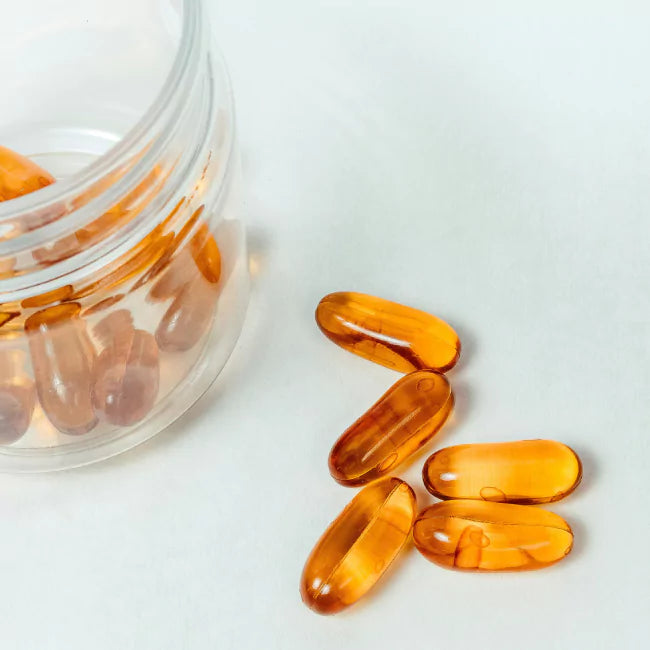Amino Acids and Bodybuilding: Increase Muscle Gain
 By: by Amino Science
By: by Amino Science

You wouldn’t go for a cross-country drive without making sure all your car’s fluids were topped off. After all, you know that what you put in your vehicle correlates directly to what you’ll get out of it. Similarly, when you fail to provide your body with the proper fuel, you limit your attempts to build muscle and decrease body fat.
It will likely come as no surprise that amino acids continue to reign as the most essential natural bodybuilding supplement available. Research consistently shows that high-quality amino acid supplements offer a range of desirable benefits for bodybuilders.
Read on to learn about eight essential and nonessential amino acids with proven and impressive effects on muscle building, fat loss, muscle soreness, and more. Before exploring the specific ways certain amino acids influence bodybuilding efforts, however, let's review some basics about amino acids.
What Bodybuilders Should Know About Amino Acids
Hopefully you're already aware of the vital role nutrition plays in all attempts to refine and optimize your physique. Understanding the essential components of a diet that supports your training regimen should be basic knowledge for any bodybuilder, and no diet for bodybuilding would be complete without a steady, well-balanced supply of amino acids.
Amino acids are small chemical compounds that contain both an amino functional group and a carboxyl functional group. These compounds are then synthesized together to form proteins—hence their nickname, "the building blocks of protein." When humans eat protein-rich foods, our bodies break them down into their constituent amino acids and then use those amino acids to carry out core functions.
Bodybuilders must synthesize significantly greater amounts of protein compared to non-athletes (due to their ongoing efforts to produce muscle growth and strength gains). This requires uniquely high levels of amino acids on an ongoing basis. In many cases, meeting the ideal threshold for amino acid intake will necessitate the use of amino acid supplements.
Differentiating Between Essential and Nonessential Amino Acids
There are many different types of amino acids as well as many ways to divide them into different groups. The distinction most relevant in terms of human nutrition is that between essential and nonessential amino acids.
Essential Amino Acids
Essential amino acids (EAAs) are those that cannot be made by the body. As a result, you’ll need to provide your body with all the essential amino acids it needs—either from the food you eat, or a combination of food and proper supplementation.
Certain essential amino acids have been shown to have physiological effects that are especially relevant to bodybuilding goals. Those EAAs include:
- Leucine
- Isoleucine
- Valine
- Lysine
That said, your body can only access the full benefits of those EAAs, which we'll enumerate in more detail below, when it has a balanced supply of all nine essential amino acids (the remaining five are histidine, methionine, phenylalanine, threonine, and tryptophan).
What About Branched-Chain Amino Acids?
If you're interested in the targeted use of sports nutrition dietary supplements to help you reach your bodybuilding goals, you have most likely heard of branched-chain amino acids, or BCAAs. But do you know which amino acids that moniker refers to? Hint: they appear on the list of essential amino acids above. Those first three, leucine, isoleucine, and valine, are the branched-chain amino acids, a subset of essential amino acids named for their distinctive, branch-like molecular structure.
Researchers have found that BCAAs make incredibly significant contributions to generation, maintenance, and repair of muscle tissue. Though leucine does the lion's share of the work, the three appear to exert a strong synergistic effect.
As is true for the use of amino acids in general, it's important to choose supplements formulated to contain the correct ratio of each amino acid. The right amounts of isoleucine and valine will enhance the remarkable anabolic effects of leucine.
Nonessential Amino Acids
Given that you now know the definition of essential amino acids, you might be able to guess that nonessential amino acids are those that our bodies can produce even if we’re not consuming them from foods we eat. Under certain circumstances, however, it can still be quite valuable to fortify your body's indigenous supply of these amino acids.
For bodybuilders, whose training places unusual demands on their muscles, digestive systems, brains, and more, an increased intake of several nonessential amino acids either from food sources or supplements can be considered, well, essential. Those nonessential amino acids include:
- Glutamine
- Arginine
- Citrulline
- Aspartic acid

The Science Behind Amino Acids' Bodybuilding Benefits
Thanks to the longstanding interest in the use of protein and the amino acids that compose it to support strength training and bodybuilding pursuits, there is a wealth of research on both the effects of amino acids as well as best practices for supplementation.
Studies show that amino acids facilitate the replacement of damaged muscle fibers with new muscle protein, resulting in greater muscle mass growth as well as more efficient strength gains.
Amino acids also help to reduce inflammation, which helps you to recover more rapidly between training sessions.
Amino acids can maximize your performance not only for strength training, but also for multiple types of athletic endeavors. For instance, taking amino acids prior to high-intensity cardio workouts can reduce the fatigue you experience while exercising. Amino acid supplements can also bring benefits for:
- Powerlifters
- CrossFitters
- Cyclists
- Runners
A review of scientific literature published in Nutrition & Metabolism in 2017 found that even when individuals are consuming adequate amounts of dietary protein, taking supplemental essential amino acids can increase muscle protein synthesis. It also appears to result in greater muscle cross-sectional area.
Furthermore, amino acids can facilitate improved post-exercise muscle recovery. This appears to be especially true for younger individuals. The review cited above points to several studies that support the fact that pairing increased consumption of amino acids with exercise can enhance the recovery of muscle function as measured 1-4 days following heavy exercise while decreasing proxy markers of muscle damage or soreness.
8 Essential and Nonessential Amino Acids Bodybuilders Should Try
If you want to get unsurpassed benefits from every workout, taking both pre-workout and post-workout amino acid supplements, in combination with a steady intake of amino acids throughout the day, can help you make that happen.
Be sure to choose an essential amino acid supplement that contains significant amounts of the following eight amino acids.
1. Leucine
Your body requires significant quantities of leucine, an essential amino acid and branched-chain amino acid, for both protein synthesis and other various metabolic functions. Leucine contributes to the regulation of blood sugar levels, facilitates balanced use of energy, prevents excessive breakdown of muscle proteins, and promotes the growth and healing of tissues in your skin, bones, and skeletal muscle. It's also a key potentiator for the production of human growth hormone (HGH).
Testing indicates that leucine may be one of the most potent natural anabolic substances in existence. That said, you should not expect miraculous results when you begin supplementing with leucine, no matter what some purveyors of such products may tell you. That's because it's quite likely you're already absorbing large quantities of leucine from the food you eat. It can be found in nearly all protein sources, including plant-based protein sources like beans, nuts, brown rice, and whole wheat.
Increasing your intake of leucine will ensure that you get the most out of the work you put into increasing your lean muscle percentage and decreasing your body fat percentage, but it will not do the work for you.
2. Isoleucine
As their names point to, leucine and isoleucine carry out similar roles within the human body. Isoleucine also has a balancing effect on blood sugar levels, supports muscle recovery, boosts energy levels, and stimulates the production of HGH.
Isoleucine even outperforms its close relative when it comes to wound healing. It accelerates the formation of hemoglobin and blood clots, the body's first line of defense against possible pathogens that can enter the body through open wounds.
There's also some indication that isoleucine can increase endurance.
3. Valine
Valine, the third of the BCAAs, also contributes to muscle growth and muscle repair. This essential amino acid has some individualized functions, too, including maintaining the body's nitrogen balance as well as ensuring the nervous system and and cognitive functions run smoothly.
Valine also prevents muscle tissue breakdown by providing the muscles with extra glucose that can carry out energy production. This is especially useful during physical activity.
4. Lysine
This essential amino acid is a necessary building block for all of the body’s proteins. Given that, it's hardly surprising that lysine pops up as a power player throughout the body's system.
Lysine, like valine, helps keep nitrogen levels stable. During periods of stress and fatigue, it ensures you retain lean body mass. It also plays a major role in calcium absorption, which furthers bone and muscle growth as well as the utilization of fat for energy needs. And like practically all the essential amino acids, it helps repair damaged muscle tissue. Plus, the body needs lysine in order to generate antibodies, hormones, enzymes, and collagen. Last but certainly not least, lysine helps to maintain the health of your blood vessels.
5. Glutamine
This nonessential amino acid is the most abundant in the human body. At times, it accounts for over 60% of the total intramuscular free amino acid pool.
Glutamine is one of the main building blocks used to form your genetic code, appearing in more strands of DNA and RNA than any other amino acid. It’s also used by many cells in the body as fuel for growth. Plus, it helps balance your body's pH (levels of acidity and alkalinity) which reduces lactic acid concentrations, thereby decreasing muscle soreness. It appears to decrease cravings for sweets, too, which can be useful for those who have weight loss on their list of physique goals.
Though glutamine is a nonessential amino acid, which means your body can produce its own supply, it can nevertheless be beneficial to supplement it under certain circumstances. This puts it in the category of conditionally essential amino acids—seven amino acids that your body can make on its own when all is going well, but that you may need to supply in times of injury, illness, or excess stress.
Evidence suggests that during times of stress the body can’t produce enough glutamine to keep up with demand, which can lead to reduced performance. Athletes, especially those that participate in strenuous endurance events, may find that glutamine supplementation results in seriously improved results. This holds particularly true for those adhering to low-carbohydrate diets, as their muscles will already be in a glucose-deprived state and more prone to catabolic breakdown.
6. Arginine
Arginine, like glutamine, is a conditionally essential amino acid. It's a bodybuilding supplement staple, thanks to its status as both an immune system and athletic performance booster.
Arginine is perhaps best known as a precursor for the production of nitric oxide, but it's a precursor for creatine and polyamine production too. Increased production of nitric oxide improves circulation, which can in turn improve exercise performance and benefit your heart health. Creatine generates energy to fuel you through hard workouts while polyamines keep cells healthy as you age.
Historically, studies have supported the use of arginine supplementation as a means of increasing the rate of muscle protein synthesis, accelerating wound healing, and transporting waste products of protein metabolism to the kidneys for excretion. However, it now appears that supplementing with citrulline may be a more effective way to raise your blood levels of arginine.
7. Citrulline
Because your body uses citrulline to form arginine, supplementing with citrulline can actually have a more measurable impact on blood levels of arginine than supplementing with arginine would.
Studies show that supplemental citrulline also increases nitric oxide production. As a key vasodilator, nitric oxide helps to regulate blood flow throughout the body. This is less crucial in a resting state, but during exercise, it can produce notable benefits.
If you hope to achieve the effect on nitric oxide traditionally linked to arginine, as well as the other benefits associated with higher blood levels of arginine, choosing an amino acid supplement that contains citrulline will likely be the best choice.
8. Aspartic Acid
Though aspartic acid is truly a nonessential amino acid, studies indicate that because it plays a major role in the body's energy cycle, increasing your intake of aspartic acid can boost stamina and increase your mental focus.
Some data, such as this study published in PLOS One in 2017, indicate supplementing with aspartic acid leads to increases in total testosterone levels, though this benefit appears to be most pronounced for individuals who do not regularly engage in resistance training.
How to Use Amino Acids for Bodybuilding
A good rule of thumb is to use a high-quality amino acid supplement formulated to contain a balanced ratio of all the essential amino acids as well as any specific amino acids whose benefits you hope to reap. We've taken 30 years of research and developed that precise blend in Perform for enhanced athletic performance.
For maximal muscle gain, aim to take 60 grams of amino acids daily. On days you work out, the timing of your amino acid intake can significantly influence your results. For best improvement to physique and performance, use the following schedule:
- Pre-workout, take 15 grams in the 30-minute window prior to your workout.
- Post-workout, take an additional 15 grams just after you complete your workout.
- One hour later, take another 15 grams.
- Before bed, take 15 grams if you are committed to the most regular dosing schedule possible and willing to set an alarm to wake you up 6 hours later to take a final 15-gram dose. If not, take 20 grams.
On rest days, you can divide up your full 60 grams however you'd like. Taking amino acids between meals seems to yield superior results.


Up to 25% off Amino
Shop NowTAGS: bodybuilding
Join the Community
Comments (0)
Most Craveable Recipes




 833-264-6620
833-264-6620



















